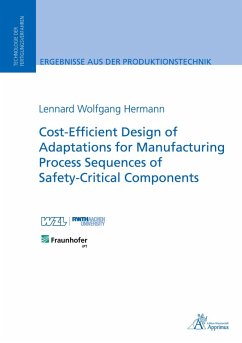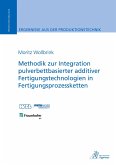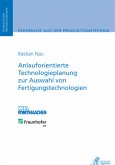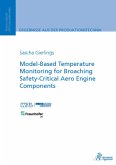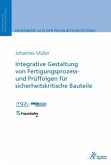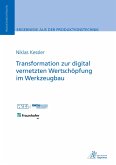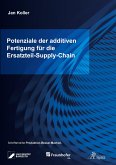Manufacturing companies must adapt components at a more frequent rate. However, changes to components are not only necessary during product development, but also after market entry, so that established manufacturing processes or existing manufacturing process sequences must be adapted. The adaptation of established manufacturing process sequences in response to a required component change represents a particular challenge for the manufacture of safety-critical components in the medical technology and aerospace sectors. In addition to change planning, legal regulations must be taken into account, and a high level of planning reliability must be ensured to secure the components' functionality. The complexity of planning adaptations for an established manufacturing process sequence is therefore increased by the framework conditions of the manufacture of safety-critical components. To date, however, there is no methodical procedure that supports in designing adaptations for established manufacturing process sequences while taking the framework conditions of safety-critical components into account.The subject of this dissertation is the development of a methodology for the cost-efficient design of adaptations for manufacturing process sequences of safety-critical components. The developed methodology consists of three main steps. Within the first main step, alternative adaptations for a manufacturing process sequence to be considered are identified in order to implement a required component change. For this purpose, a model that describes interdependencies between manufacturing process sequences and components, as well as a procedure for the cost-efficient derivation of alternative adaptations were developed. The second main step of the methodology serves to evaluate the alternative adaptations and enables practitioners to compare and favor alternative adaptations under consideration of the framework conditions of safety-critical components by means of a specially developed cost model and an evaluation procedure. Step three of the methodology deals with the analysis of the change propagation, which adaptations of the manufacturing process sequence can cause. To analyze the change propagation, an algorithm was developed to ensure that the change propagation is fully captured and that the functionality of the component is ensured after the adaptation of the manufacturing process sequence.
Bitte wählen Sie Ihr Anliegen aus.
Rechnungen
Retourenschein anfordern
Bestellstatus
Storno

